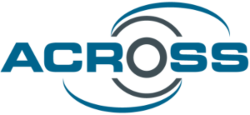The World Economic Forum 2023 featured a session on “Preparing 1 Billion People for Tomorrow’s Economy,” where experts discussed the importance of preparing the global workforce for the changing economy. The session was moderated by Zanny Minton Beddoes and featured Jonas Prising, Belen Garijo, C. Vijayakumar, Ahmad bin Abdullah Humaid Belhoul Al Falasi, and Till Leopold. The discussions generated insights that enable relations with the current EU digital policies to enhance cross-border services and the ACROSS project, which strives to create seamless cross-border services in the EU.
The session was a crucial discussion on the critical interventions needed to provide better skills, jobs, and education for 1 billion people by 2030. With 1 billion jobs liable to be transformed by technology in the next decade, the experts shared their insights on the importance of providing individuals with the skills and training they need to succeed in the new economy. The experts discussed the need for governments to create policies that support workers and businesses in the transition to the new economy. These policies can include initiatives that provide education and training programs, as well as support for businesses that are adapting to new technologies. They also emphasized the importance of providing access to technology and digital services for all citizens, regardless of their location or background.
In this regard, the EU is leading in preparing its citizens for the changing economy through its digital policies to enhance cross-border services and the ACROSS project. The project plays a key role in helping to prepare the EU’s citizens for tomorrow’s economy by providing access to digital services and removing barriers to the free flow of data and services within the EU.
It is important for the EU to achieve a good level of digital knowledge by 2030 because digital skills and literacy have become essential for participating in the digital economy and society. The increasing use of digital technologies in all areas of life means that individuals who lack digital skills are at risk of being left behind.
According to data from the European Commission, only 56% of EU citizens have basic digital skills, while only 16% have advanced digital skills. This presents a significant challenge for the EU, which means that over half of its citizens are at risk of being excluded from the digital economy and society. Moreover, a Eurostat study found that the EU has a higher share of low-skilled adults (32%) compared to the US (24%) and Canada (22%). Having a good level of digital knowledge by 2030 is also crucial for the EU’s competitiveness and economic growth. The EU’s digital economy is expected to contribute 4.5% to its overall Gross Domestic Product (GDP) by 2030, and digital technologies are becoming increasingly important for businesses of all sizes. According to the European Commission, digital technologies can potentially create 2.7 million new jobs in the EU by 2030.
Moreover, the COVID-19 pandemic has accelerated the shift toward the digital economy, highlighting the importance of digital skills and literacy. According to Eurostat, the use of e-commerce in the EU increased by 10% between 2019 and 2020, and the use of digital technologies has become more widespread in all areas of life, from education and healthcare to commerce and entertainment.
The ACROSS project and EU digital policies to enhance cross-border services are essential components of the EU’s efforts to prepare its citizens for the changing economy. By providing access to a wide range of digital services and removing barriers to facilitate the movement of people who wish to study or work in a different member state, the EU is helping to ensure that its citizens have the skills and opportunities they need to succeed in the 21st century.
One of the key benefits of the ACROSS project is that it will improve data privacy for citizens. By providing a common framework for cross-border services, the project will ensure that citizens’ data is protected and secure when it is transmitted across national borders. This privacy protection will give citizens greater confidence in the digital services they use, and it will help to create a more trustworthy digital environment in the EU.
The ACROSS project will also play an important role in helping to prepare the EU’s citizens for tomorrow’s economy. By providing access to a wide range of digital services and ensuring the free flow of data and services within the EU, the project will equip citizens with the skills and opportunities they need to succeed in their professional life.

